In a world where data is king and efficiency reigns supreme, cloud computing software has emerged as the trusty sidekick every business needs. Imagine a digital superhero that swoops in to save the day, effortlessly managing data storage, collaboration, and security—all while you kick back and sip your coffee. Sounds dreamy, right?
Table of Contents
ToggleOverview of Cloud Computing Software
Cloud computing software transforms how businesses manage data and resources. Businesses utilize this technology to store, access, and share information via the internet. This software provides flexibility and scalability, adapting to diverse needs.
Different types of cloud computing software exist, including Software as a Service (SaaS), Infrastructure as a Service (IaaS), and Platform as a Service (PaaS). SaaS offers complete applications online, eliminating the need for installation. Examples include Google Workspace and Salesforce, enabling collaboration through shared tools. IaaS provides virtualized computing resources, such as Amazon Web Services and Microsoft Azure, permitting users to develop and manage their infrastructure. PaaS acts as a development platform, allowing developers to build applications without managing the underlying infrastructure.
Security remains a principal concern in using cloud computing software. Many providers implement robust encryption, multi-factor authentication, and regular security audits to protect data. Compliance with industry regulations, like GDPR and HIPAA, is crucial for organizations managing sensitive information.
Cost-effectiveness represents another significant advantage. Cloud computing software often reduces expenses by minimizing hardware costs, enhancing resource allocation, and allowing for pay-as-you-go pricing models. This model empowers organizations to scale their services according to demands, optimizing budget management.
Integrating cloud computing software improves collaboration among teams. Employees can access data from any location, fostering innovation and productivity. Companies adopting this technology gain a competitive edge by leveraging real-time insights and information sharing, which enhances decision-making processes.
Key Features of Cloud Computing Software

Cloud computing software offers critical capabilities for businesses seeking efficient data management and resource utilization. Key features include scalability, flexibility, security, and compliance.
Scalability and Flexibility
Scalability allows organizations to increase or decrease resources as needed, aiding growth without incurring excess costs. Businesses can customize their cloud services based on current demands, adapting seamlessly to changes. Flexibility enhances this adaptability, enabling teams to access applications from any device and location. Cloud services accommodate fluctuating workloads, ensuring that resources match organizational requirements. As a result, companies optimize performance while maintaining cost-effectiveness.
Security and Compliance
Security remains a top priority for cloud computing software, with multiple layers protecting sensitive data. Providers implement robust encryption techniques to safeguard data both at rest and in transit. Multi-factor authentication adds an extra level of security, ensuring only authorized users gain access. Compliance with regulations such as GDPR and HIPAA is also critical, as providers often undergo rigorous assessments to demonstrate adherence. Organizations can trust that their data is safe, allowing them to focus on their core operations without worry.
Popular Cloud Computing Software Solutions
Several cloud computing software solutions dominate the market today, each offering unique advantages for businesses. Understanding these solutions helps organizations choose the right one tailored to their needs.
Solution 1: Overview and Benefits
Google Workspace serves as a comprehensive SaaS platform for productivity and collaboration. It includes applications like Google Docs, Sheets, and Drive, allowing teams to work on projects in real time. Users benefit from seamless integration with various tools, facilitating effective communication through Gmail and Google Meet. The cloud-based nature enables access from any device, ensuring flexibility and convenience. Organizations experience significant cost savings due to subscription-based pricing rather than hefty upfront investments in software.
Solution 2: Overview and Benefits
Amazon Web Services (AWS) stands out in the IaaS segment, providing a broad range of computing resources. It offers scalable virtual servers, storage solutions, and networking capabilities to support diverse workloads. Users easily adjust resources based on demand, promoting flexibility and cost-effectiveness. AWS supports global operations by allowing companies to deploy applications in multiple regions, enhancing performance and reliability. Many organizations leverage AWS to innovate rapidly, gaining a competitive advantage through its robust ecosystem of services and tools.
Choosing the Right Cloud Computing Software
Selecting appropriate cloud computing software requires careful consideration of various factors. Decision-makers need to evaluate their organization’s specific needs, budget, and long-term goals.
Factors to Consider
- Scalability: Ensure software can grow with the organization’s needs, providing additional resources without disruption.
- Security: Prioritize providers with strong security measures, including encryption and multi-factor authentication to protect sensitive data.
- Compliance: Confirm the software meets necessary regulatory requirements, such as GDPR or HIPAA, safeguarding business operations.
- Integration: Assess how well the software integrates with existing systems and applications, promoting seamless workflows.
- Cost Structure: Compare pricing models, including subscription versus pay-as-you-go options, to determine the most cost-effective choice.
Common Pitfalls to Avoid
- Neglecting User Needs: Avoid selecting software based solely on features. User experience and ease of adoption significantly impact productivity.
- Underestimating Costs: Ensure to account for all potential expenses, including licensing, maintenance, and training.
- Ignoring Vendor Support: Verify that the provider offers robust customer support. Limited assistance can hinder efficient use of the software.
- Overlooking Data Migration: Plan for challenging data migration processes. Failure to ensure a smooth transition can result in data loss or downtime.
- Forgetting Future Needs: Anticipate future requirements. Choosing software that cannot adapt to evolving business demands limits growth potential.
Cloud computing software stands as a transformative force in the business landscape. By offering scalable solutions and robust security features, it empowers organizations to streamline operations and enhance collaboration. Companies that embrace this technology not only improve productivity but also gain a significant competitive advantage.
As the digital landscape continues to evolve, the importance of selecting the right cloud software tailored to specific needs cannot be overstated. With careful consideration of factors like scalability, security, and cost, businesses can leverage cloud computing to drive innovation and achieve their long-term goals. Investing in the right cloud solutions is a strategic move that can lead to sustained growth and success.



